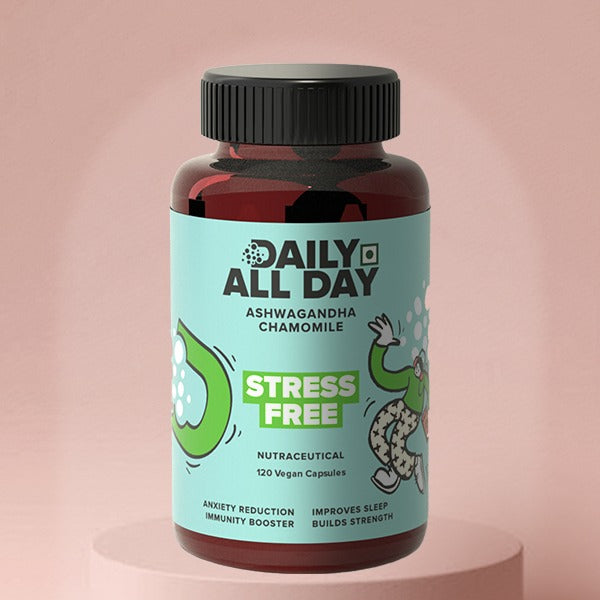Cholesterol is a word we often hear in a normal conversation but do we really understand the meaning and importance of it? Keep reading to understand Cholesterol, the good and the bad.
What is Cholesterol?
Cholesterol is a certain kind of waxy-fat-like substance which is vital for cell walls, other hormones. Cholesterol is perceived as something dangerous but the truth is our body could not function without it. It is produced by our liver and it plays a crucial role in performing important functions such as digestion and production of stress-relieving hormones like cortisol and sex hormones like testosterone (male hormones) and estrogen (female hormones).
What is HDL and LDL Cholesterol?
High Density Lipoprotein (HDL) Cholesterol is also known as “good cholesterol” because it removes the other forms of cholesterol from the bloodstream that could be harmful. HDL identifies the extra cholesterol in the blood and takes it back to the liver, where it breaks down and gets removed from the body before it could build up in the vessels. Higher levels of HDL cholesterol lowers the risk of heart diseases.
Low Density Lipoprotein (LDL) Cholesterol is a type of lipoprotein (fat carrier) in the body. Due to the structure of the fats, it can’t move through the blood on its own. So, lipoproteins work as a medium to carry fats to various cells in the body. LDL Cholesterol is also known as “bad cholesterol” due to risk of heart diseases and strokes it poses. LDL cholesterol is not harmful because it performs important functions in your body but high levels of LDL can cause many health issues.
What are normal Cholesterol levels?
Cholesterol is a fat in the blood that the body needs to function properly, but having too much of it can be harmful. The level of total cholesterol in the body should be below 200 mg/dl (milligram per decilitre). The normal level of LDL should be less than 100 mg/dl and the normal level of HDL should be 60 mg/dl or higher.
How to balance cholesterol levels?
There is a lot that can be done to maintain a balanced level of cholesterol starting with regular exercise and a heart healthy foods:
- Eat healthy food- Plant based foods like summer fruits, whole grains, nuts, vegetables, seeds and legumes can help improve cholesterol levels.

- Physical activities- Giving your body a 30 minute moderate workout everyday like back exercises, etc. on a regular basis can increase good cholesterol
- No Tobacco- Tobacco increases the levels of LDL, so quitting smoking and tobacco can improve the cholesterol levels.
- Weight Loss- Having extra weight increases the chances of LDL cholesterol in the blood which raises the normal heart rate and other serious problems. Losing weight can help lower cholesterol along with heart issues.
Ayurvedic Herbs that reduce cholesterol levels

Ayurveda has been in existence to cure diseases for a long time. Its herbs provide a definitive solution to a problem which cannot go unnoticed. Some of the ayurvedic herbs that control and reduce cholesterol levels are-
- Garlic (Lehsun)- Garlic is used for its ability to support cardiovascular health which helps in lowering cholesterol levels.
- Fenugreek (Methi)- Methi is a high fibre content and its seeds have beneficial effects on lowering cholesterol levels as it helps in reducing weight. Supplements can also help in maintaining an ideal body weight.
- Berberis Aristata (Daruharidra/Indian Barberry)- Daruharidra can help reduce cholesterol in many ways; it can improve the lipids (fat) lowering the levels of LDL cholesterol and raising the levels of HDL cholesterol. This herb or a supplement improves the lipid profile reducing the risk of cardiovascular issues.
The relationship of Blood Sugar and Cholesterol
Blood sugar is the glucose or main sugar that is found in your blood and primary source of energy. The body breaks down the food you eat into glucose and releases it in your bloodstream. When your blood sugar goes up, it signals your pancreas (digestive gland) to release insulin (blood sugar hormone). Insulin helps the glucose get into your cells to be used as energy.
Conclusion
Cholesterol is an imperative substance in the body with important roles in maintaining health. However, maintaining a balance of hdl and ldl cholesterol is the way to prevent fat around liver and heart diseases. Daily All Day suggests that adapting an active lifestyle that includes back exercises and a good diet ensures the chances of a healthy and normal heart rate and monitoring cholesterol levels will keep you aware of any risk that might occur in your body.
Frequently Asked Questions (FAQs)
1. How to manage blood sugar and cholesterol?
While managing blood sugar and cholesterol, a combination of lifestyle changes is required such as implementation in diet, like adapting to more balanced meals, fiber rich foods and healthy fats (avocados, olive oil, nuts and seeds) and physical activities with consistency can help improve insulin sensitivity, lower blood sugar levels, and manage cholesterol.
To monitor and maintain the levels of blood sugar and cholesterol, medications could be considered to improve the performance.
2. Are cholesterol and blood sugar related?
Blood Sugar and cholesterol are connected with each other and managing one can impact the other.
Impacts of High Blood Sugar on Cholesterol- High levels of blood sugar, especially in conditions like diabetes can increase the LDL cholesterol which contributes to the buildup of plaque in the blood vessels raising cardiovascular risk.
Impacts of High Cholesterol on Blood Sugar- High levels of LDL cholesterol can contribute to insulin resistance where the cells do not respond to insulin (blood sugar hormone) which leads to higher levels of blood sugar and an increased risk of developing type 2 diabetes.



















